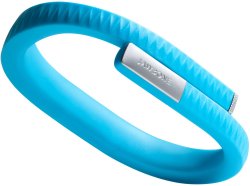Top Class Actions’s website and social media posts use affiliate links. If you make a purchase using such links, we may receive a commission, but it will not result in any additional charges to you. Please review our Affiliate Link Disclosure for more information.

Lead plaintiff Robert Frenzel alleged in the class action lawsuit that he was fraudulently induced to purchase a Jawbone UP fitness-tracker wristband by misrepresentations regarding the product’s battery life and general functionality. The plaintiff filed the initial complaint in August claiming that he purchased a second generation Jawbone in 2012 because of marketing that indicted the fitness tracker’s battery would keep it running for up to 10 days before it needed to be recharged.
According to Frenzel’s class action lawsuit, the device did not hold a charge, however, and the replacement battery experienced similar problems. “Consumers purchase fitness trackers like Jawbone UP with the expectation that the product will work as marketed and advertised, and it will continue to function following normal usage,” Frenzel alleged.
AliphCom filed a motion to dismiss the class action lawsuit arguing that the plaintiff’s allegations were not specific enough to support his claims of misrepresentation. AliphCom also argued that the plaintiff needed to specify where he purchased his Jawbone to support his claim that California law should apply to a nationwide class.
On December 29, U.S. District Court Judge William H. Orrick III agreed with AliphCom and dismissed the class action lawsuit, but also gave Frenzel the opportunity to amend his complaint. Judge Orrick pointed out that the plaintiff had not indicated where he purchased his Jawbone device and, in order to maintain a class action lawsuit, this matter would need to be resolved.
“Because Frenzel has conceded that he did not purchase his Jawbone UP in California but has not identified the state in which he did purchase it, Frenzel’s individual CLRA [Consumer Legal Remedies Act], UCL [Unfair Competition Law], and FAL [False Advertising Law] claims, as well as his individual warranty claims to the extent they seek to apply California law, must be dismissed. The CLRA, UCL, and FAL claims on behalf of the putative national class must also be dismissed, both because they are precluded under Mazza, and because the underlying individual claims are deficient,” wrote the judge in his order dismissing the Jawbone UP class action lawsuit.
Judge Orrick also dismissed the plaintiff’s claims because he did not establish actionable misrepresentation on the part of AliphCom. “Frenzel relies on three theories to show that Jawbone’s conduct was likely to deceive reasonable consumers,” pointed out the judge.
“First, Frenzel alleges that Jawbone represented that the power problems which plagued the first generation Jawbone UP had been fixed in the second generation, when in fact the second generation continued to exhibit the same or similar problems,” Judge Orrick wrote.
“Second,” the judge continued, “Frenzel points to the statements on the Jawbone UP box, ‘KNOW YOURSELF, LIVE BETTER,’ ‘WEAR, SYNC, ACT,’ and ‘[u]nderstand your sleep and wake up refreshed; [m]easure daily activity and calories burned; [l]earn which foods help you feel your best.’ Frenzel asserts that these statements constitute affirmative representations regarding Jawbone UP’s reliability, and that Jawbone deceived the public by representing that the device would record a user’s daily movements and sleep patterns when the power defects prevent the product from working at all.”
“Third, Frenzel relies on Jawbone’s statement that a second generation Jawbone UP’s battery lasts ‘up to 10 days.’ Frenzel alleges that this representation proved false in that, within a few months of purchasing his initial second generation Jawbone UP, the device’s battery ‘stopped maintaining its charge,’ while his replacement device ‘could not retain a charge’ and ‘ultimately died,’” Judge Orrick continued.
“As currently alleged, none of these theories is sufficient to support Frenzel’s claims under the consumer protection statutes,” Judge Orrick concluded. He noted the plaintiff’s allegations relied on statements about Jawbone that were “the sort of vague statements about general functionality that are not actionable under California’s consumer protection statutes.” Judge Orrick also concluded that a reasonable consumer would not rely on the statements the plaintiff argued were misleading when purchasing the product.
Frenzel is represented by Lawrence Timothy Fisher, Julia A. Luster and Annick Marie Persinger of Bursor & Fisher PA.
The Jawbone UP False Advertising Class Action Lawsuit is Frenzel v. AliphCom, Case No. 3:14-cv-03587, in the U.S. District Court for the Northern District of California.
ATTORNEY ADVERTISING
Top Class Actions is a Proud Member of the American Bar Association
LEGAL INFORMATION IS NOT LEGAL ADVICE
Top Class Actions Legal Statement
©2008 – 2024 Top Class Actions® LLC
Various Trademarks held by their respective owners
This website is not intended for viewing or usage by European Union citizens.














